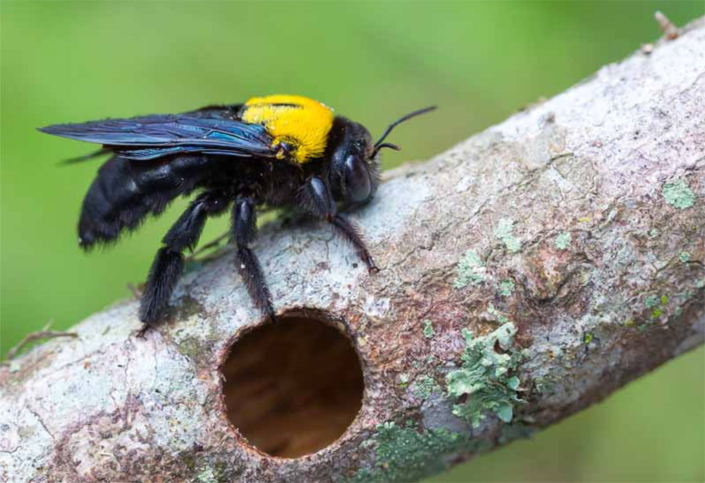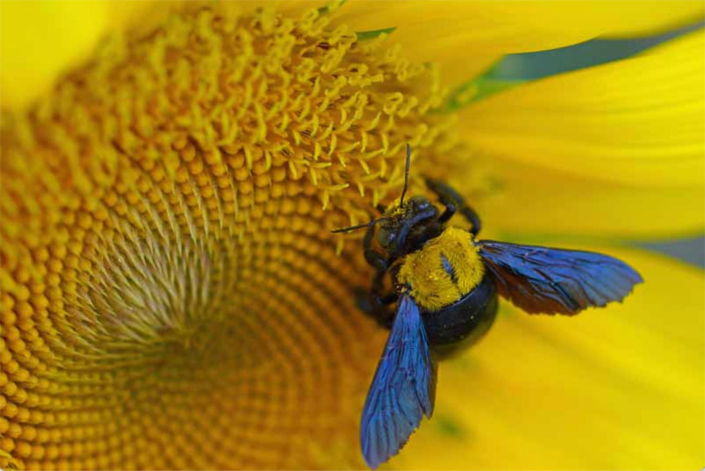Carpenter Bees Are Important Native Pollinators
Carpenter bees not only drill through wood, but they also pollinate flowers. They are easily identified by their large size and sleek black abdomens as opposed to smaller bumble bees that have fuzzy black and gold striped abdomens.
Many people think of carpenter bees as nuisance insects that require extermination. In fact, these bees are important native pollinators.
It’s difficult to keep that in mind when this largest of native bees is boring perfectly round holes into the eaves, posts, beams, and/or decks of your home. Prevention, however, is the key to protection.
One way to keep some carpenter bees a safe distance from your home is to pound a 2 x 4 of unfinished wood into a corner of your property. Above video taken by FIConservancy President Tom Sargent shows that this technique has proven successful on Fishers Island!
Carpenter bees love untreated wood, so all exposed wood surfaces should be painted with a primer and two coats of exterior paint. Stains and varnishes also offer some protection but are less effective than paint.
Prevention is best done in early spring before nesting activity begins, and holes should be filled in the fall, only after the bees have emerged from the nest.
These bees will not eat your house like carpenter ants or termites. They do not eat wood but rather drill through it to create space to lay eggs and often will return annually to the same nesting area. The damage they cause is usually minor and cosmetic in nature. But over time, if left unchecked, the damage can worsen and lead to more serious problems.
Large male bees buzz around the nest to protect the nesting area, but they have no stingers. The females have stingers, and will sting only when provoked.
Carpenter bees are vital to our native plant communities and gardens, feeding on nectar and transferring pollen. With a decline in native bee pollinators due to diseases, pests, pesticides, stress and malnutrition, maintaining a healthy population of carpenter bees is more important than ever.

